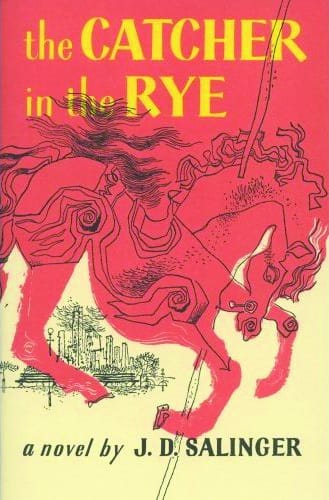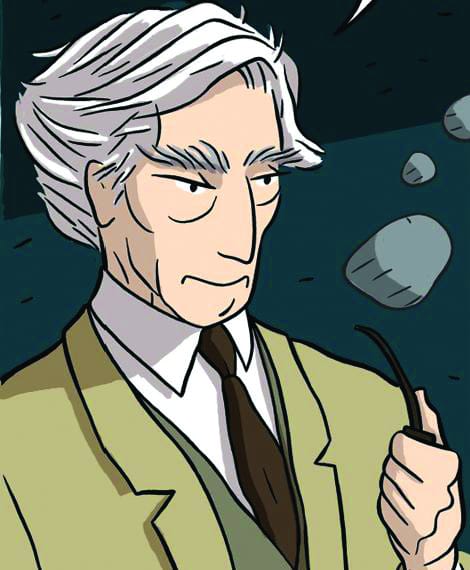The Kingkiller Chronicle
Maciej Matuszewski reviews Patrick Rothfuss' bestselling fantasy epic

I don’t generally read all that much fantasy, at least compared to science fiction, but I was drawn to Patrick Rothfuss’ Kingkiller Chronicle by a pair of very positive reviews in Locus and the Magazine of Fantasy and Science Fiction. I bought the first book in the series, The Name of the Wind, but it was left neglected on my shelves for several months – the consequence of a huge backlog in my reading list.
One boring recent evening, however, I was looking through my bookshelf for something to read. I skimmed through the first few pages Don Quixote, Kafka’s collected short stories, and Simmons’ Hyperion, but nothing especially caught my fancy. Then I picked up The Name of the Wind and the next thing I knew it was past midnight and I was some half way through the novel. As soon as I was finished I picked up the sequel, The Wise Man’s Fear (the third book in the trilogy has not yet been released), and, despite it weighing in at almost a thousand pages, I worked my way through it in little more than a weekend.
The series’ massive success is certainly unexpected. On the surface it seems like standard fantasy fare – a magical school, or more specifically a university; an evil plot to destroy the world; a noble race of warriors – does any of this sound familiar? As soon as you open either of the books you even see an utterly generic and not especially well drawn map of the sort that is clearly inspired by Tolkien and commonly appears in the work of unexceptional authors such as Juliet McKenna and Adrian Tchaikovsky. One’s expectations are hardly likely to be raised by the fact that an accurate description of the plot is that it’s an account – presented in real time – of three men sitting in a bar and talking.
An accurate description of the plot is that it's an account – presented in real time – of three men siting in a bar and talking
It’s what they’re talking about that’s interesting as Kvothe, famed musician, swordfighter and magic user who has, for some as yet unknown reason, been forced into hiding and is posing as innkeeper in a small village, recounts the story of his life to his apprentice and a historian. This is where Rothfuss shows his skill at moulding mundane and tired subject matter into something exceptional. His clear, engaging style draws you in immediately. Soon you begin to notice that the author’s strength lies not only in style but also in plotting and worldbuilding, as he expands on common tropes in the genre to create a fascinating and original work.
What was particularly good was the mythic back-story of the universe of the book. We don’t get any clear-cut exposition or a precise timeline of events presented in an appendix à la The Lord of the Rings. Rather Kvothe, that is the younger Kvothe of the story within a story, learns of the ancient events that eventually come to shape his destiny through half forgotten legends, religious propaganda and old children’s bedtime stories. Kvothe, and the reader, being left to decipher the truth from these fragments adds a lot to the books and serves as a fascinating examination of how facts can become twisted through time.
Also noteworthy is the magic system in The Kingkiller Chronicle. I am of the opinion that magic in fiction works best when it is either left very mysterious, like, say, in The Lord of the Rings, or when it follows strict, well explained rules. A system that tries to take the middle road, such as that in the Harry Potter books, very rarely works. A story where the various incantations cause weird things to happen for some unexplained reason, with arbitrary limitations, quickly gets frustrating and leaves the door wide open for deus ex machina endings. The Kingkiller Chronicle is special since it actually features both types of the ‘good’ magic – firstly a mysterious Wizard of Earthsea style name-based magic and secondly the more commonly used “sympathy”. Since this latter form is so well explained it lets the readers understand the characters’ limitations and means that whenever they use their arcane abilities it just seems natural. It also unique and refreshing in that it is presented in a scientific manner. Sympathy actually obeys conservation of energy and lectures at the aforementioned magical university involve students having to memorise efficiency tables for various ‘spells’.
This is a truly unforgettable series – I would go so far as to say that in many ways it rivals Tolkien
It would be remiss not to also mention the framing device. I have previously said how much I like a story where an older version of the character recounts the story of their life as it really allows the reader to get in their heads. This is especially relevant in this story since, as could be expected of an exceptionally skilled teenager, the younger Kvothe is often arrogant and full of himself. This could have easily become annoying and obnoxious if not for the older Kvothe pointing out, mostly through nothing more than a somewhat disproving tone, how stupid his younger self really was at times. The framing device also provides much of the driving force for the story – though the two time periods in the novel are only some ten years apart the older Kvothe is a drastically different, broken man – leaving the reader to wonder how he became this way.
This is a truly unforgettable series – I would go so far as to say that in many ways it rivals Tolkien. Everything about it just seems to work and fit together to create something exceptional. I am certainly looking forward to the conclusion, The Doors of Stone, and advise you all to check out the first two books before it comes out.









